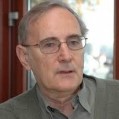Tibor Várady
TIBOR VÁRADY (Zrenjanin / Nagybecskerek, 1939) is a professor of law. He received his law degrees in Belgrade (JD) and at Harvard (LLM and SJD). He taught for almost three decades at the Novi Sad University School of Law, and for a number of years he was editor and editor-in-chief of the literary magazine Új Symposion. He is member of the Serbian Academy of Sciences and Arts. Since 1993, he has been teaching at the Central European University in Budapest. He is also a tenured Professor at Emory University, Atlanta. In legal practice, he acted as international arbitrator in about 200 cases, and also acted as counsel and advocate before the International Court of Justice. He has about 300 scholarly publications in five languages. Most of his publications are devoted to various fields of international law, but they also include collections of essays and a novel.

